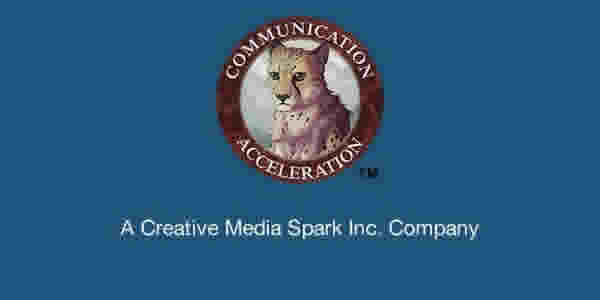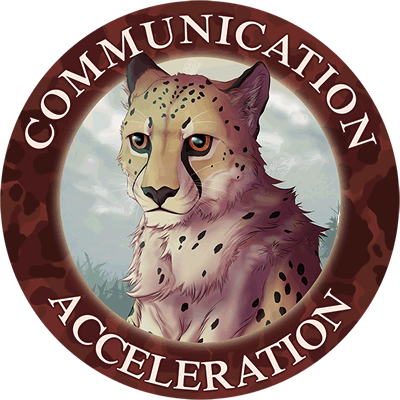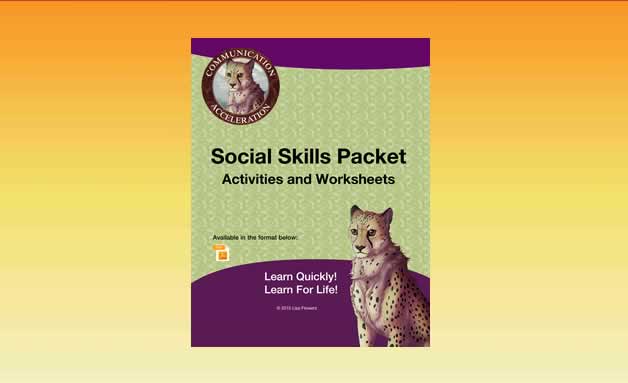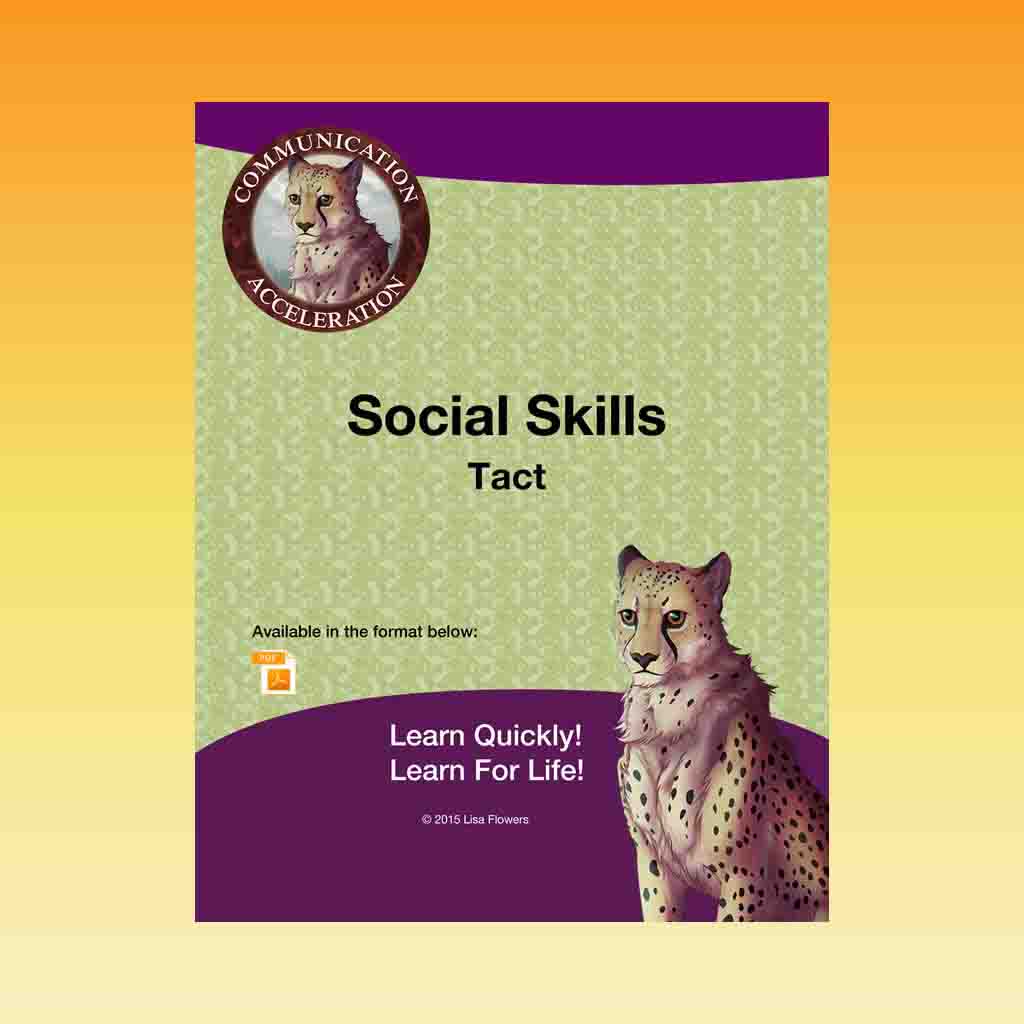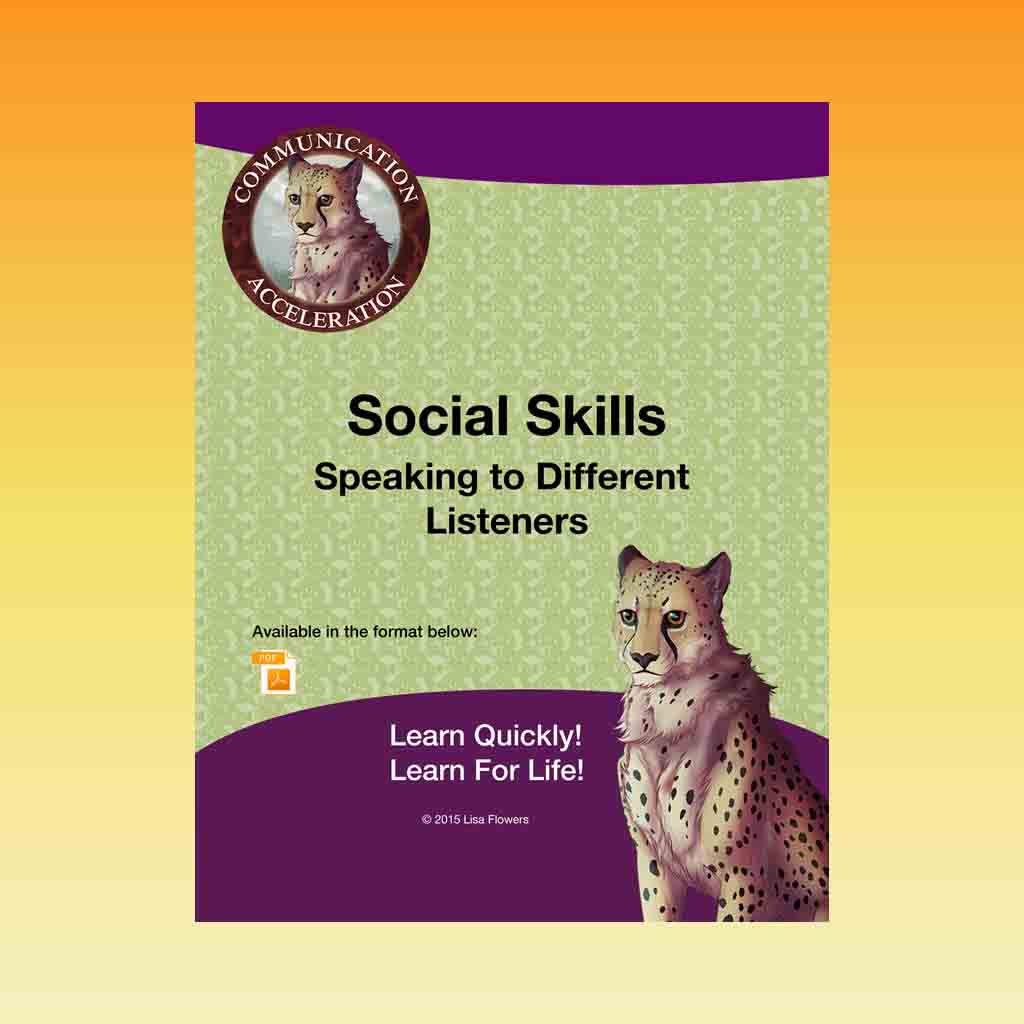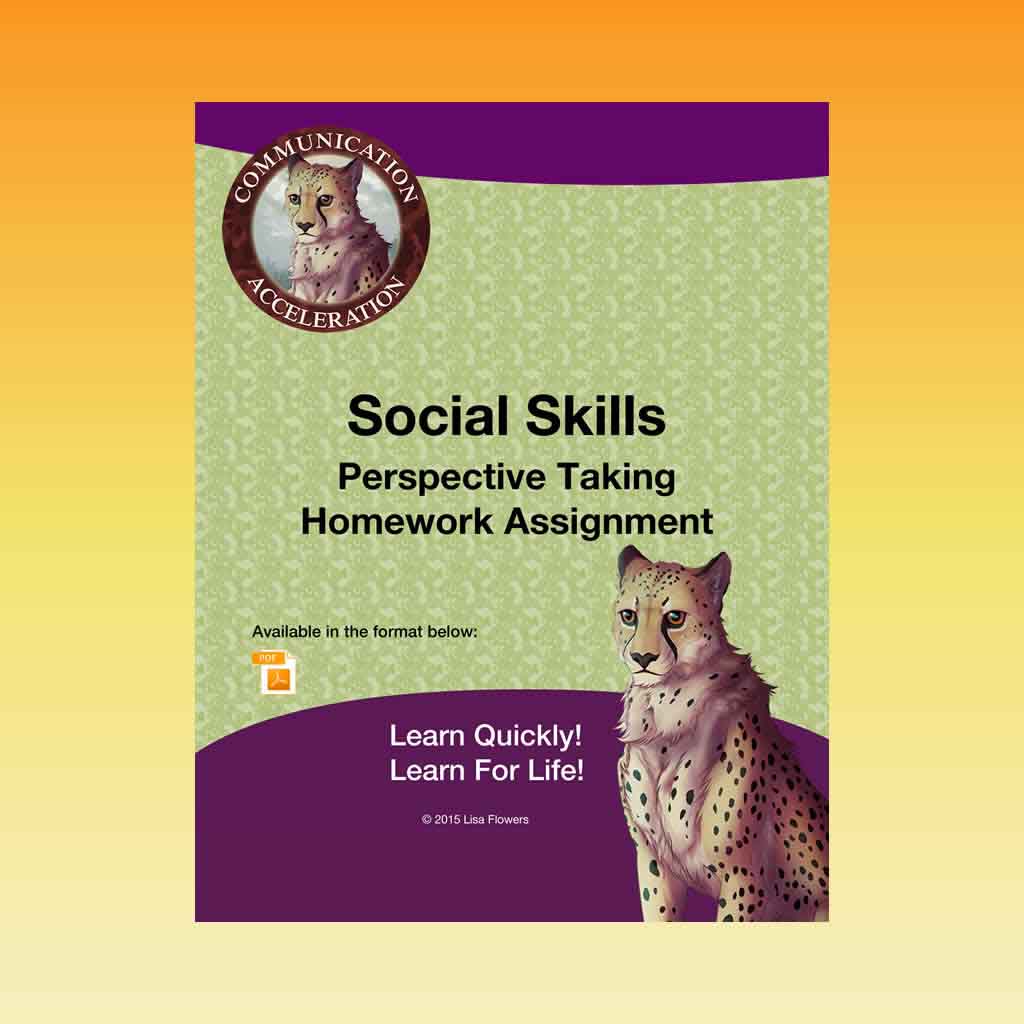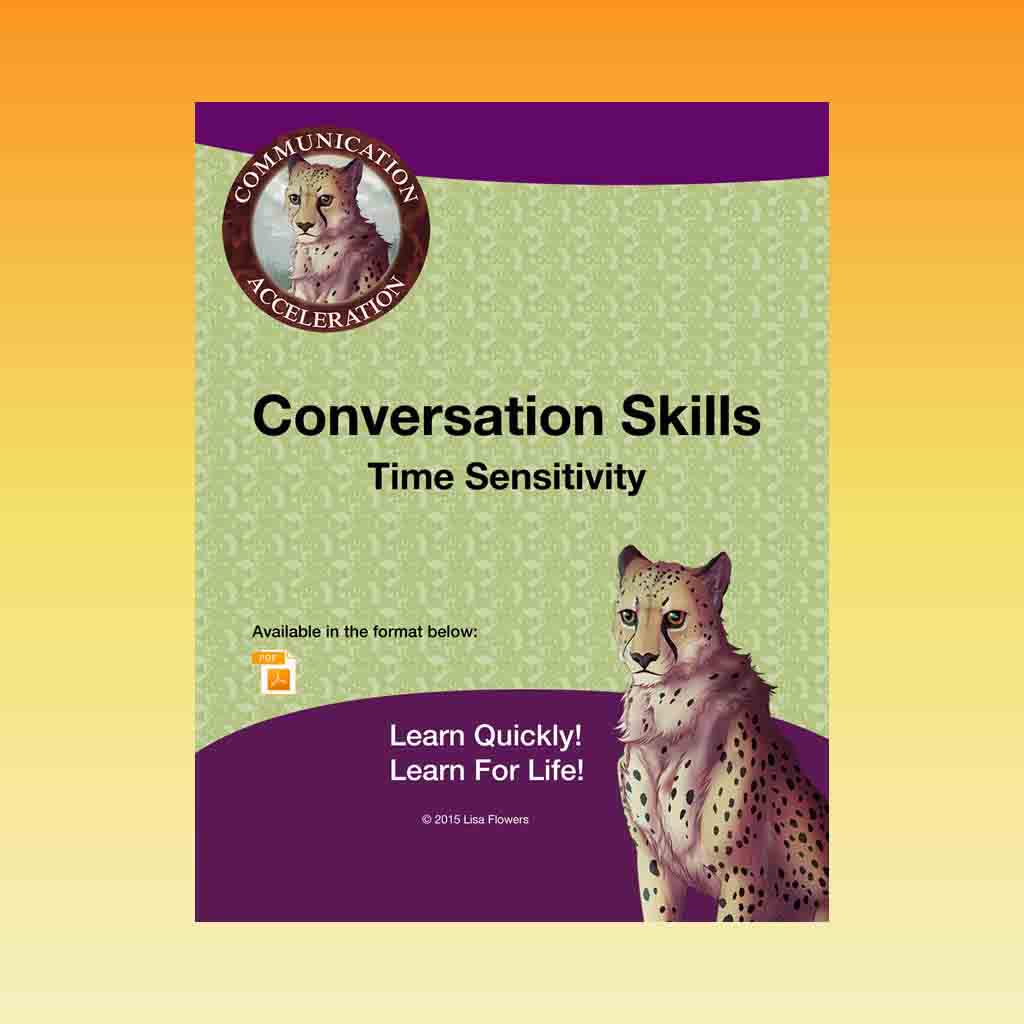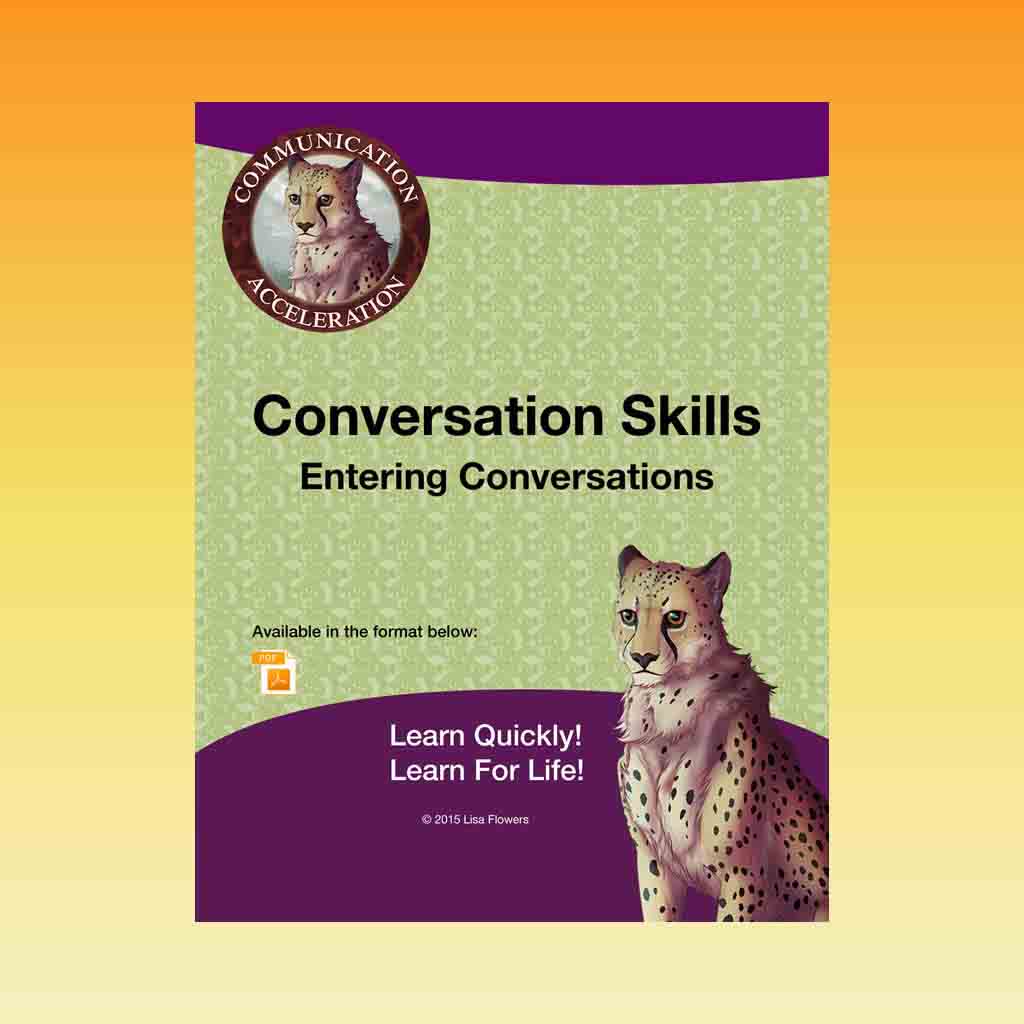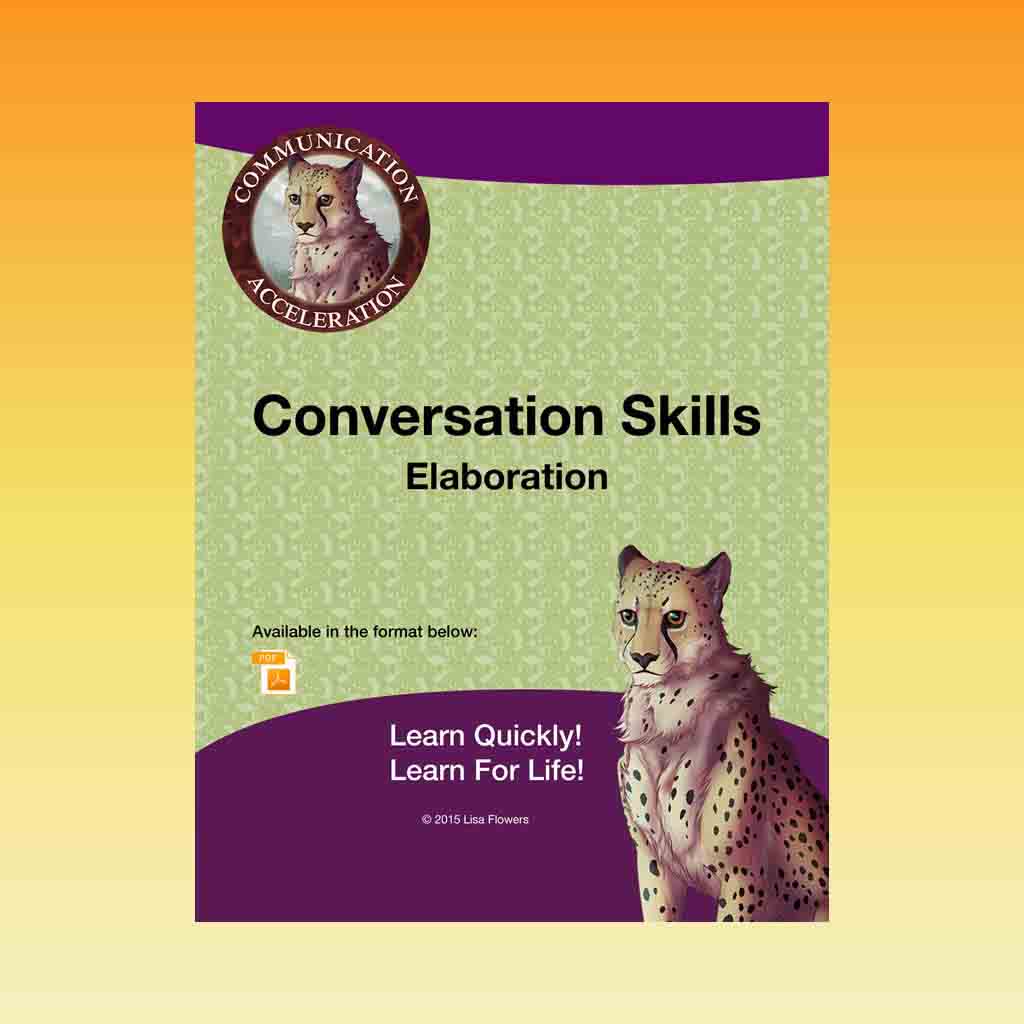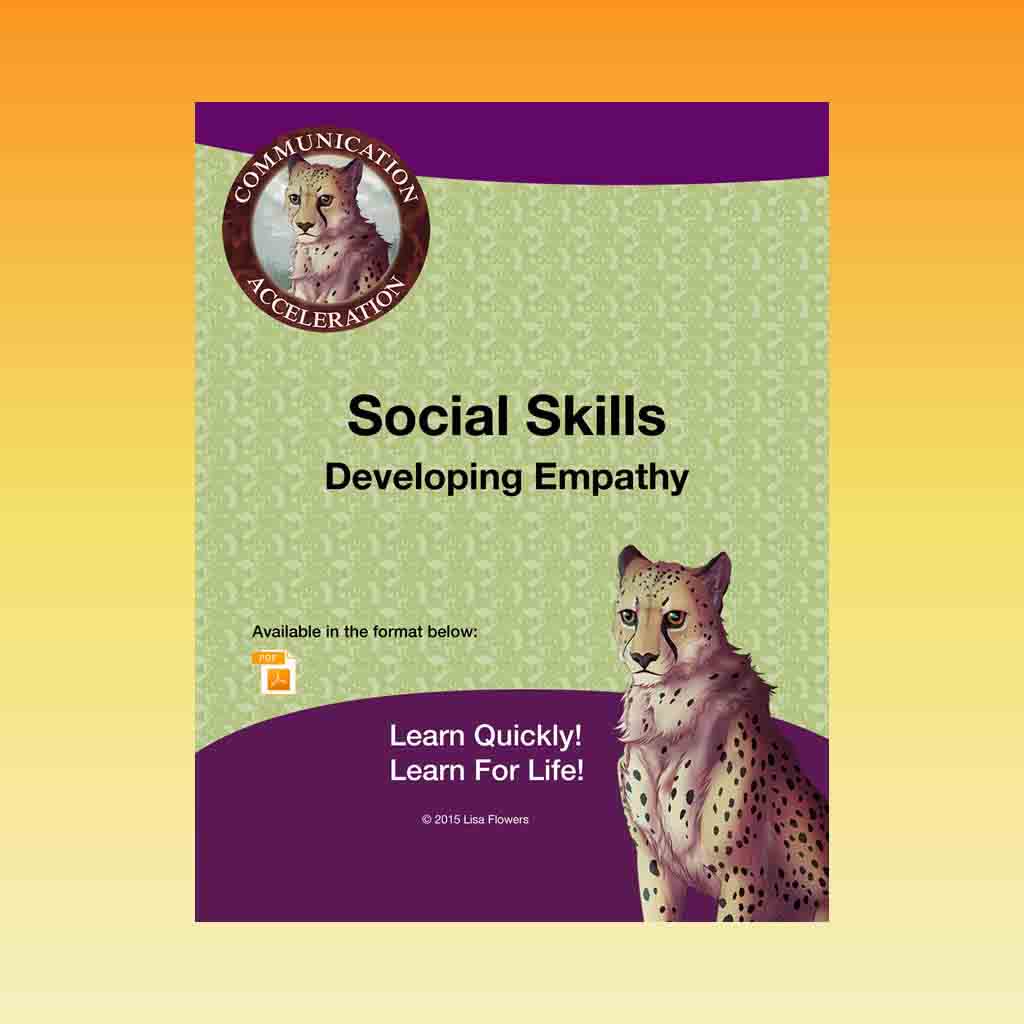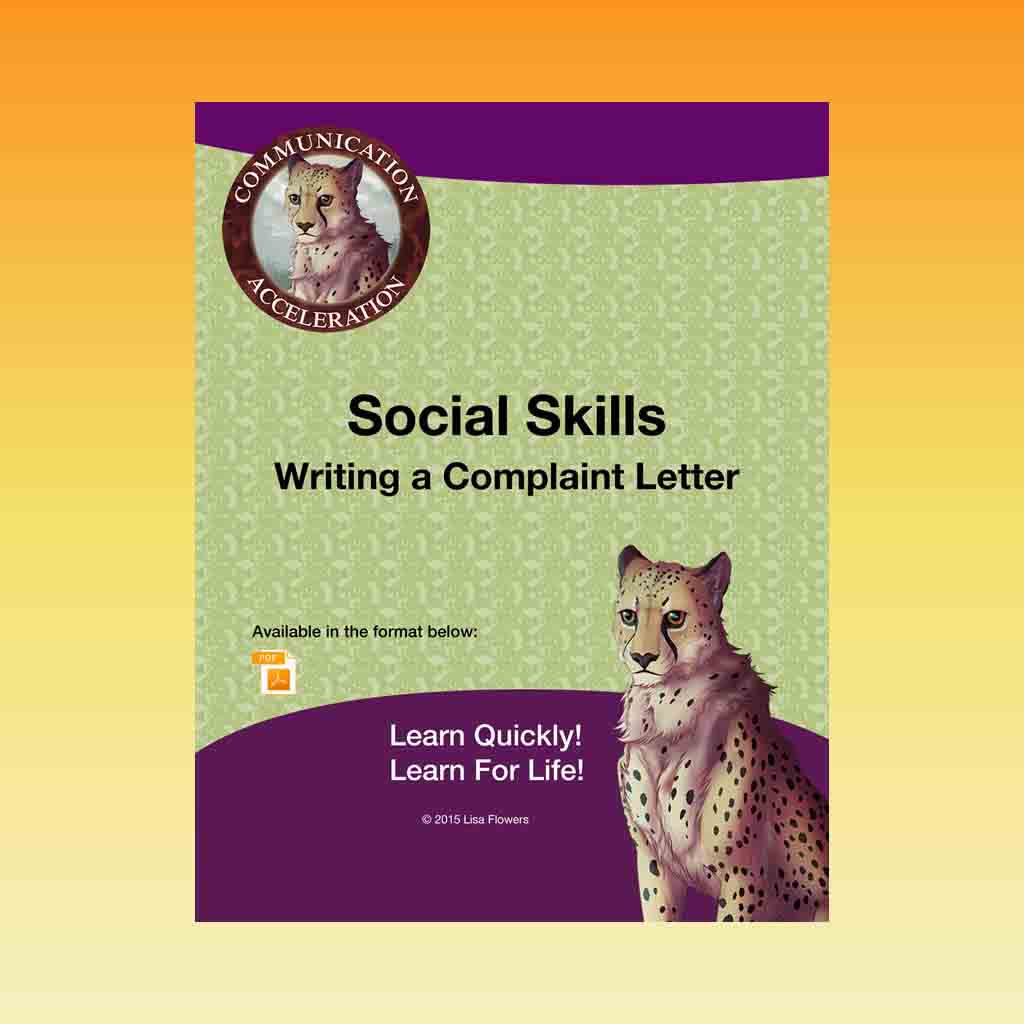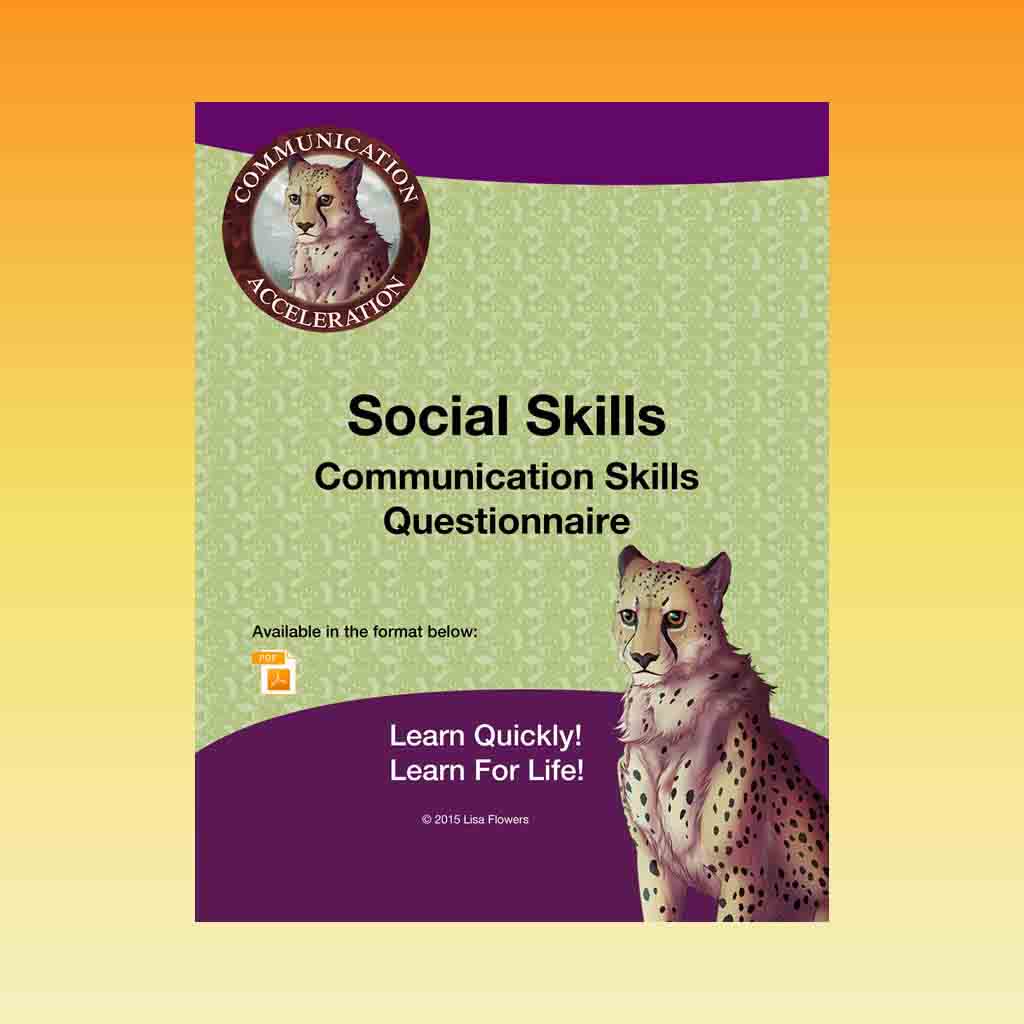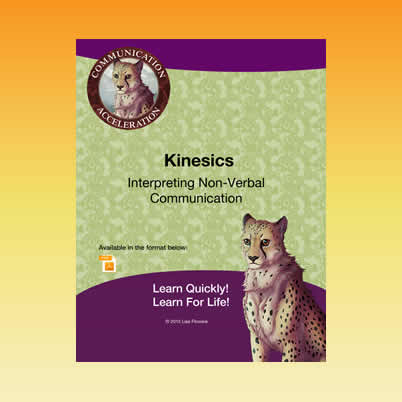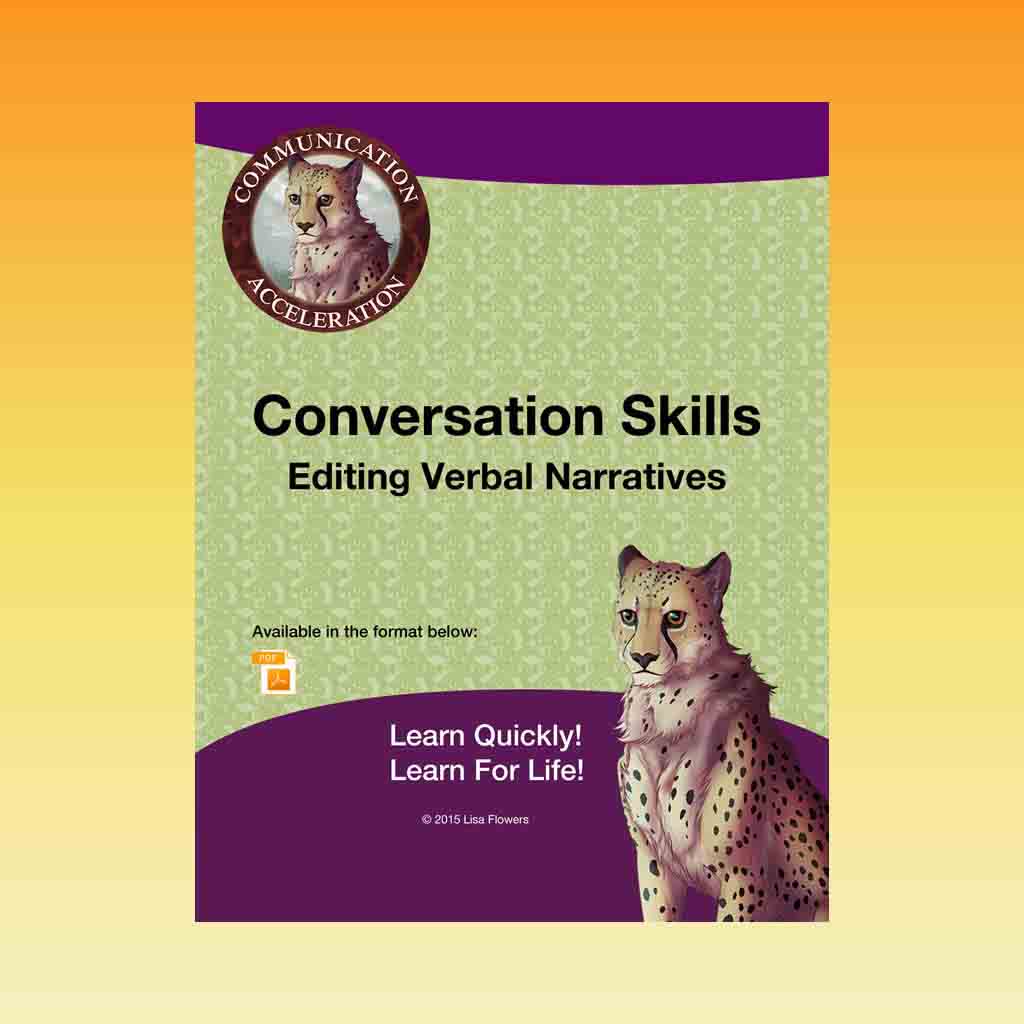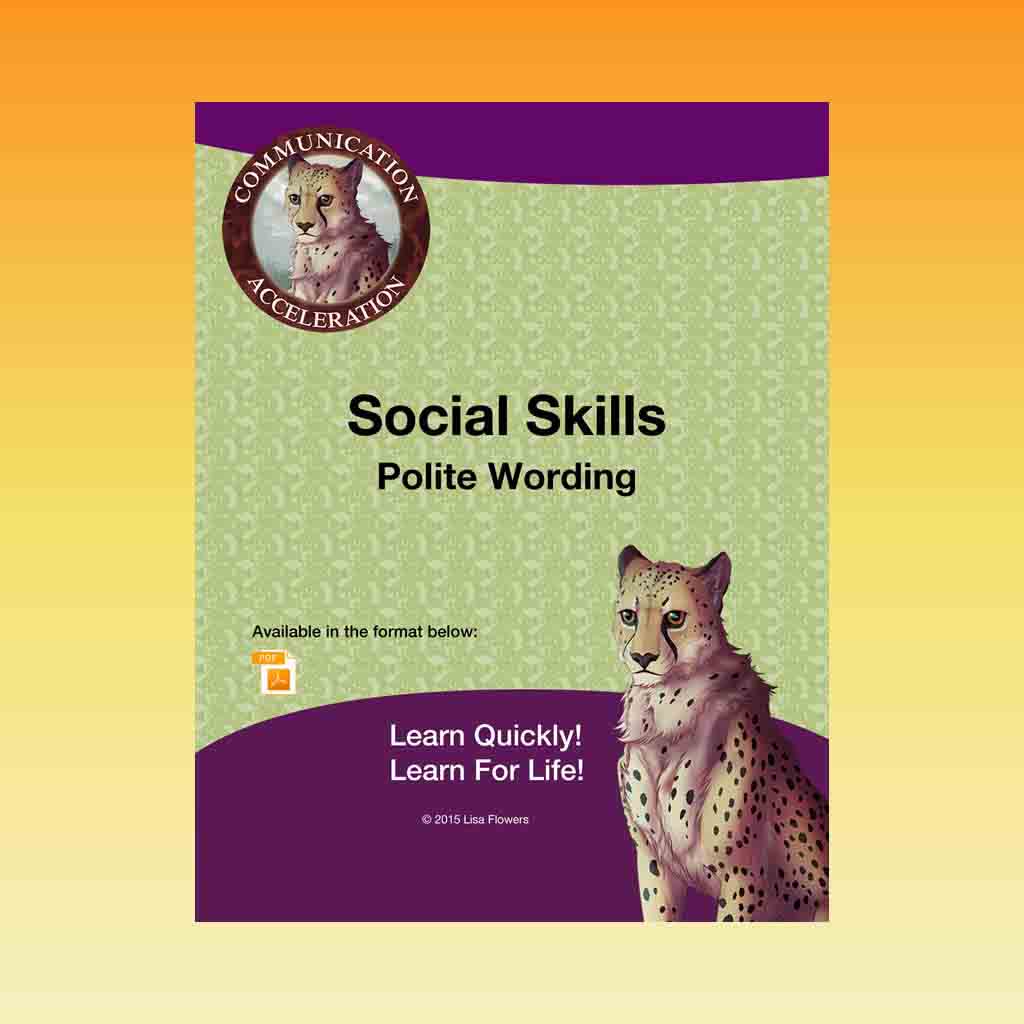Social Skills: Editing Narratives
So many of my students on the autism spectrum have trouble editing themselves when they’re telling me about a vacation they went on or their favorite video game, as examples, often providing too many details because they’re not keeping their listener in mind. I have found that these printable worksheets work directly and effectively on this issue. Students are provided with a written example of a verbal narrative, and must delete details in order to best serve a given listener and context. We then discuss all the choices made, such as how one portion could be interesting to a listener and therefore kept in while another portion is redundant or too detailed and should be omitted. Also included are discussion notes for therapeutic intervention, along with a reproducible form with a blank narrative portion.
Conversation Skills: Entering Conversations
This handout provides an outline of the behaviors required to enter an on-going conversation, including observation, physical proximity, timing, commenting/questioning, determination of acceptance, and exit strategies. The handout can be used for discussion and/or role-play to help individuals on the autism spectrum improve their conversational skills and knowledge of social dynamics.
Conversation Skills: Time Limits
One of the most common conversational errors individuals on the autism spectrum (and many neurotypical individuals!) make is overextending their conversational turns. Many factors can be involved in this kind of mistake, including limited listener presupposition skills, deficient perspective taking, and trouble evaluating a communicative partner’s interest level. This activity provides practice with determining an appropriate time period for a conversational turn by taking into account the context and the conversational partner, and then conveying assigned semantic content accurately within that time period.
Communication Skills Questionnaire
This questionnaire serves two purposes. First, since motivation is a key component on the road to success, this questionnaire titled “Communication Skills I’d Like to Work On” gives your students the message that they can play an active role in choosing some of the skills you will help them with throughout your time together. Second, the questionnaire increases students’ awareness of the range of skills their speech language pathologist can help them improve. The questionnaire is divided into the following categories: Conversational Skills, Practical Skills, Non-Verbal Skills, Dating, and Conflicts.
Social Skills: Developing Empathy and Conversations
This is one of my favorite activities and one that I’ve found to be highly effective at establishing perspective taking and developing empathy through conversational practice! It starts with an extensive discussion of the importance of empathy followed by comprehensive explanations for the terms “spatial inclusion”, “conversational participation”, “social distress”, and “mood”. Students can then practice social observation and determination of others’ perspectives by using the handout created for use in sessions, and learn to generalize by using the “homework” handout for real-world practice. Included are notes on how to best use the materials along with suggestions for modified activities.
Put Yourself in Someone Else’s Shoes Homework Assignment
This is a great assignment to give following the Developing Empathy and Conversations activity. It begins with an extensive discussion on helping individuals on the autism spectrum develop perspective taking and empathy, including some of my professional experiences. A homework handout follows, requiring students to observe real-life social interactions and to “put themselves in another’s shoes”. The handout ends by asking what actions the student could have taken to improve a social situation for a person in distress, thereby tying observation and interpretation to troubleshooting and taking action.
Social Skills: Polite Wording
This straightforward worksheet works on listener presupposition and perspective taking skills. It begins with a written discussion of thinking about your listener before speaking and why it’s important to modify your requests and comments in order to get the best results. It provides examples of polite phrases to add to requests and opinion statements, followed by several sentences for which students can incorporate those phrases. The activity gives students practice at modifying their wording while considering their listeners.
Social Skills: Speaking to Different Listeners
Adjusting to your communicative partner is an important skill with which individuals on the autism spectrum often struggle. Keeping your listeners in mind (listener presupposition) in terms of what information they need or don’t need, and how your words give them a specific impression of you, is essential to successful communication. These worksheets work directly on improving listener presupposition skills. Students write down hypothetical verbal answers to various questions, without knowing to whom they are speaking, and then go back and choose which parts of their answers they would keep or omit, given the identity of their listeners, including a new friend, a job interviewer, a grandparent, etc. Choices made can then be discussed and modified. Three separate printable worksheets ensure improvement of your students’ perspective taking and listener presupposition skills.
Conversational Skills: Elaboration
This handout provides examples of a range of responses to the same question, leading to a conversation practice activity. These scripted responses clearly demonstrate to individuals on the autism spectrum how elaborated responses lead much more naturally to extended conversation. The handout starts with a written discussion of conversational elaboration and social dynamics.
Social Skills: Tact
This handout works on perspective taking and the development of empathy. Individuals on the autism spectrum often struggle with these skills, and this handout helps students understand others’ perspectives and feelings. The twenty-one statements presented contain various tactless sentiments, including bragging, offensiveness, prejudice, inappropriateness, and over-generalization, which can be used for extensive discussion of others’ viewpoints. An answer key is included.
Writing a Complaint Letter (Reader Presupposition & Perspective Taking)
This activity is unlike any I’ve found available for perspective taking and is one of my very favorites! It addresses the intricacies of writing while keeping your reader in mind and the all-important skill of modifying your wording to give another person a targeted impression of you, all while working on a practical high-level life skill! It combines writing skills and social skills. It begins with an actual complaint letter requesting monetary compensation, extensive therapy notes on how to conduct the activity (including sentence by sentence interpretation of the effectiveness of the complaint letter’s wording), and novel situations from which students must write their own complaint letters. When writing their complaint letters, students are tasked with choosing both content and wording which will give their readers two targeted impressions of them: honest and reasonable. I have watched many of my students notably improve their perspective taking skills to a more sophisticated level from this activity. (Plus teenagers love being given not only permission, but also the expectation, to complain!)
Kinesics and Conversation Skills
Individuals on the autism spectrum typically have difficulty noticing and interpreting non-verbal cues, and consequently often try to engage in conversations past their communicative partners’ interest or time limits. This activity directly works on the skills of observation and interpretation. Students are given a checklist of behaviors of interest and disinterest, including open body posture, varied intonation, flat affect, and levels of eye contact, and are tasked with observing and tallying these behaviors, thereby making kinesics tangible and helping them determine whether or not to continue conversations and interactions. This product includes comprehensive therapeutic notes and directions, providing extensive suggestions on how to best conduct activities including improving generalization to real life social interactions.
